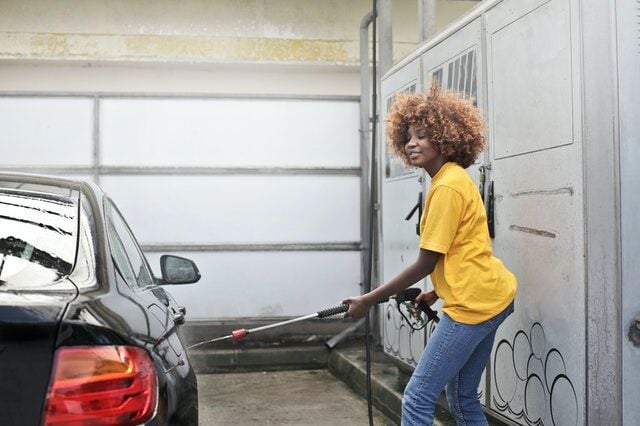
Select the right pressure washer for you
When it comes to pressure washers, there are many options available on the market. So, how do you select the right one for your car-cleaning needs?
The first step is to determine the PSI (pounds per square inch) that the washer offers. This number will give you an idea of the machine's cleaning power. For cars, a pressure washer with at least 2,000 PSI is recommended. Pressure washers usually come in two types: gas models and electric models. The difference between these washers comes from their power sources - electricity and gas. They also differ in pressure, noise levels, cost, and other factors. You can choose between these two types depending on the cleaning job you intend to do.
Gas pressure washer
A gas pressure washer is an excellent option for cleaning your car because it offers more power than an electric pressure washer. Be sure to use the correct nozzle for the job. A narrow nozzle will provide more concentrated spray, while a wider nozzle will give you a broader spray. Start by spraying the car from top to bottom, being sure to get all of the dirt and grime off of the surface. If there are any particularly dirty or stained areas, focus your attention on those spots and use more pressure. Rinse it off with water once the car is clean to remove any soap residue.
Electric pressure washer
An electric pressure washer is an excellent option for cleaning your car if you don't have access to a gas pressure washer. Electric pressure washers are still relatively powerful and can run between 1,500 and 3,000 PSI. Choosing the proper nozzle helps your spraying job be more efficient, like a gas washer. Regardless of the pressure washer type, washing your car should be done by spraying the car from top to bottom to effectively remove all of the dirt and grime off the surface. If there are any particularly dirty or heavily stained areas, adjust your nozzle on those spots to apply more water pressure. As all car washing tasks go, rinse the vehicle off with water to remove any soap residue once it is clean.
Protecting the paint
Start by spraying the car down with a water hose to remove loose dirt or dust. Next, cover any areas of the vehicle that you don't want to get wet with painter's tape or plastic sheeting. This will protect the paint from being damaged by the high-pressure spray from the pressure washer.
Cleaning the windows
To clean the windows on your car:
- Fill a bucket with warm water and a few drops of dish soap.
- Wet a sponge in the soapy water and wipe down the windows, using circular motions.
- Rinse the windows with clean water to remove any soap residue, and dry the windows with a clean cloth.
Cleaning the tires
To clean the tires on your car:
- Use a scrub brush to scrub them down. If there is any built-up dirt or mud, use a degreaser to help break it up.
- Rinse the tires with water to remove any soap residue.
- Dry the tires with a clean cloth.
Cleaning the engine
Extra care should be taken when cleaning the car engine. To clean the engine on your car, you'll need a bucket, some dish soap, and a hose. Next, fill the bucket with warm water and add a few drops of dish soap. Wet the sponge in the soapy water and wipe down the engine using circular motions. Rinse the engine with water to remove any soap residue. Dry the engine with a clean cloth. Be sure to keep the engine dry, as water can damage it.

Pressure washers can be a great way to clean your car quickly, but it's important to use them safely and correctly to avoid damaging the paint. Follow these simple tips, and you'll be able to clean your car with ease.



(0) comments
We welcome your comments
Log In
Post a comment as Guest
Keep it Clean. Please avoid obscene, vulgar, lewd, racist or sexually-oriented language.
PLEASE TURN OFF YOUR CAPS LOCK.
Don't Threaten. Threats of harming another person will not be tolerated.
Be Truthful. Don't knowingly lie about anyone or anything.
Be Nice. No racism, sexism or any sort of -ism that is degrading to another person.
Be Proactive. Use the 'Report' link on each comment to let us know of abusive posts.
Share with Us. We'd love to hear eyewitness accounts, the history behind an article.